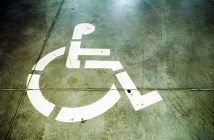Benzodiazepine medications like Valium, Xanax, and Klonopin are used by millions of Americans across the country to help them deal with symptoms of anxiety or to treat their sleeplessness. From 1996 to 2013, data from the National Institute on Drug Abuse showed that the number of Americans prescribed a benzodiazepine surged from 8.1 million to 13.5 million.
The number of people using benzodiazepine has long been on the rise. Unfortunately, so too has the size of the population misusing these powerful medications. Even worse, there is a disturbing trend of people combining their recreational use of benzodiazepine with opioid abuse, a combination that is often deadly.
Our pill-driven health care system is a significant part of the problem. The overprescription of powerful substances and a cultural permissiveness have made these medications more accessible than ever.
Thankfully, steps can be taken to overcome these substance abuse problems while minimizing dependence on new medications. This overview explores three popular supplementary treatment plans (art therapy, equine therapy, and yoga), examining how holistic therapies can enhance the recovery experience.
Symptoms of Benzodiazepine Withdrawal
When a loved one begins treatment for benzodiazepine abuse, they may need to be observed by a health care professional and treated with medication if withdrawal symptoms pose a threat to a patient’s life. If their abuse was infrequent, however, they may be able to manage their withdrawal symptoms without any medication.
Regardless, patients will eventually have to manage their benzodiazepine withdrawal symptoms without relying on new, sometimes potentially addictive medications. Patients gain little by replacing one substance abuse problem with another.
Family members can prepare themselves for helping a loved one through withdrawal or (learn skills to identify a family member secretly going through withdrawal) by learning more about the specifics of those symptoms.
Mental Health Symptoms of Benzo Withdrawal
- Panic and anxiety attacks
- Mood swings
- Delirium
- Visual hallucinations
- Depersonalization
- Other dissociative disorders
- Symptoms of psychosis
Physical Health Symptoms of Benzo Withdrawal
- Insomnia
- Body seizures
- Change in appetite
- Rapid weight loss
- Chronic sweating
- Muscle spasms
- Hyperventilation
How Do Holistic Therapies Help With Benzodiazepine Withdrawal?
As mentioned, benzodiazepine withdrawal symptoms are often so extreme that a loved one must be placed under medical supervision while they recover. They may be administered medication to ensure that the sudden removal of benzodiazepine drugs from the patient’s system does not potentially put their well-being in jeopardy.
Regardless of whether or not a person will require inpatient medical care during their withdrawal recovery, there are a number of adjacent, complementary therapies that can improve quality of life and offset the distracting symptoms of benzodiazepine withdrawal.
It is important to understand that these treatment methods do not directly address the side effects of prescription drug use. Instead, they improve the chances of a successful recovery by easing the physical challenges faced by patients who are recovering from abuse and providing them with tools to process their emotions through the jarring experience.
1. Art Therapy
One of the most destructive impacts of all types of substance abuse is that it limits communication between users and their loved one. That’s why art therapy can be crucial to a patient’s recovery. These treatments offer new ways for those working through withdrawal to get out their feelings in a healthy way, contributing to long-term success in recovery.
Types of Art Therapy
One of the reasons that art therapy is such a popular supplemental treatment is because it is so versatile. There are a wide range of potential art-based care strategies, ensuring that nearly every patient will respond positively to one type of art therapy or another. Common examples of artistic activities incorporated into benzodiazepine abuse recovery include:
- Sketching
- Writing
- Sculpting
- Playing an instrument
- Performative dance
- Acting
- Painting
Unique Benefits of Art Therapy [H3]
There are a number of unique benefits of combining traditional withdrawal treatment with art therapy:
- In some cases, art therapy is helpful method for patients trying to identify the emotional roots of their benzodiazepine abuse.
- Art therapy goes a long way toward helping patients to find ways to discuss deeply traumatic subjects that they might not otherwise be able to talk about.
- Ultimately, successful recovery from benzodiazepine abuse (and related dependence on opioids) can only be addressed by getting to the heart of what was driving the abuse in the first place. Art therapy can go a long way in assisting in this process.
2. Yoga
Many times we are focused on the psychological effects of substance abuse but neglect the physical impacts. With substance abuse, especially the abuse of prescription drugs, malnutrition and limited exercise often affect the patient at the same time. That being the case, developing a stronger and more resilient body plays a major role in helping patients overcoming dependence on medication.
Yoga as a supplemental therapy can help patients to recover their body as well as sharpening their minds. In addition to making the body more fit, yoga is known to help patients improve their focus and lower anxiety. Both of these benefits can directly improve the process of recovering from an addiction.
Unique Benefits of Yoga Therapy
Many patients overlook yoga as a potential treatment because they are unfamiliar with the benefits. That being said, the physical and benefits of the treatment are numerous. These health perks include:
- Improved sleep
- Reduced pain
- Stress reduction
- Improved diet and fitness
- Self-confidence
- Sense of introspection
- Greater strength and endurance
- Emotional relief
3. Equine Therapy
Other supplementary therapies mentioned in this article assist patients recover from benzodiazepine abuse and withdrawal by helping them process mentally or improve physically. Equine therapy manages to offer both of these benefits to patients through a unique social experience with an intelligent animal.
Horses are smart, emotionally sensitive mammals. Getting comfortable on a horse requires patients to master their own emotions, encouraging riders to learn the same skills that will help them stick to their recovery plan now and stay sober in the future. Over time, the bond that develops between a patient and the horse becomes an irreplaceable tool for mental health care.
Unique Benefits of Equine Therapy
Becoming comfortable on a horse is a complex, emotionally demanding experience. That being said, these benefits have been shown to help former benzodiazepine and opioid addicts successfully taper off of their addiction:
- Individuals who learn to better trust others through interactions in equine therapy will also be more comfortable trusting family members with issues instead of turning to drugs
- Learning to ride is a multi-part process that requires patients to be diligent and overcome disappointment, crucial tools for living a sober lifestyle
- Horses provide instant emotional feedback to patients, providing a helpful baseline for evaluating a person’s emotional state
- Trained medical professionals can use a patient’s progress working with an animal to gauge that person’s overall recovery
Need More Alternatives to Medication?
These are just a few of the many examples of benzodiazepine withdrawal therapies available to patients. The list of supplementary therapies that can help patients overcome their dependence on drugs is lengthy.
There is certainly hope for everyone to find the right mix of treatments that will help them live a happy, drug-free lifestyle. Examples not covered in this summary include massage therapy, acupuncture, and nutritional therapy.
Figuring out which treatment plans are right for you or a family member can be a big challenge without the help of an expert. That’s where a bit of extra education from proven specialists can go a long way. Visit the Alternative To Meds website for more information about non-medicinal health care treatments that help patients lead healthier lives.




